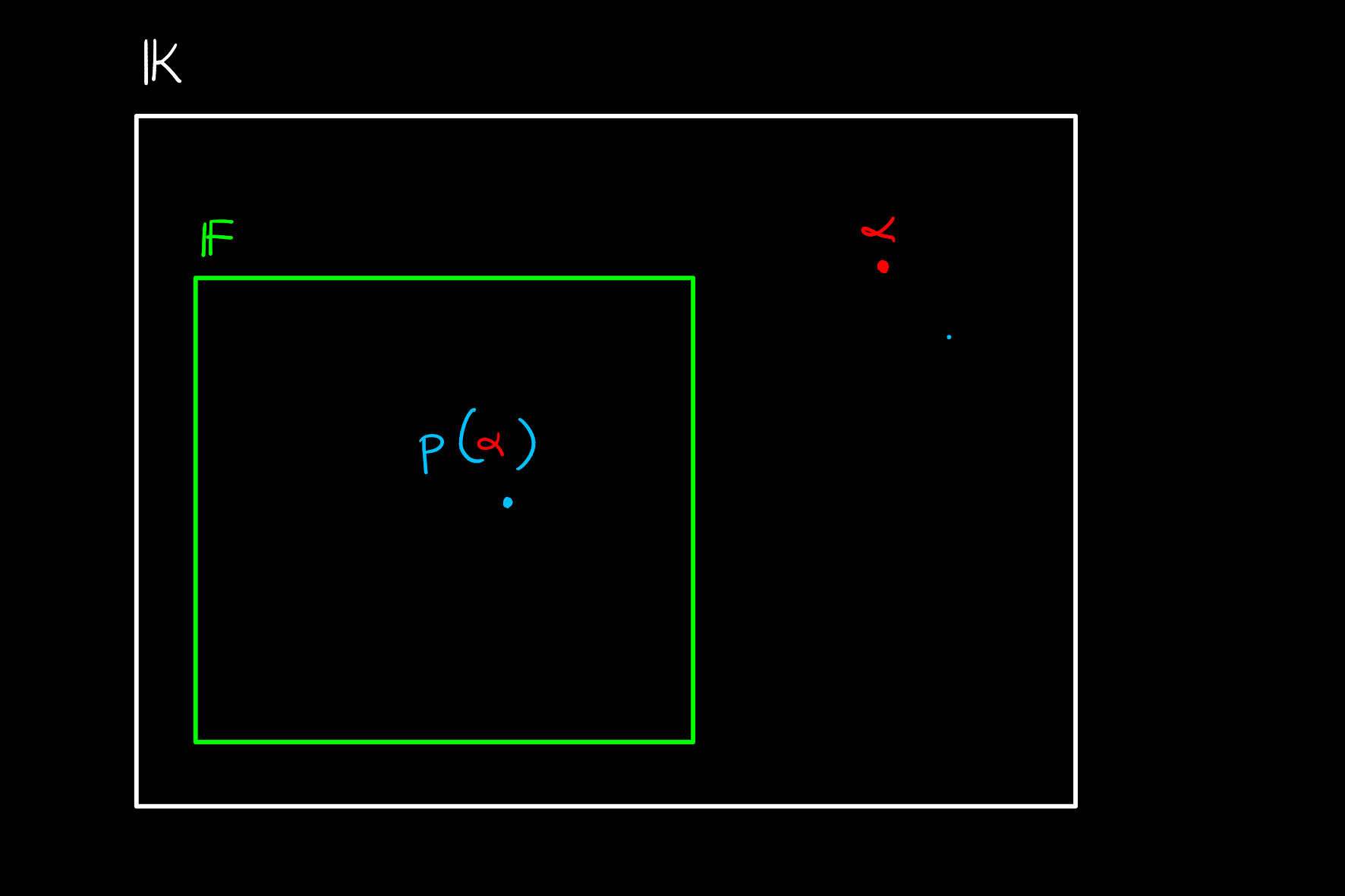Algebraic Element
Definition
Given a field extension \(\mathbb{K}/\mathbb{F}\), an element \(\alpha \in \mathbb{K}\) is called algebraic over \(\mathbb{F}\) if it is the root of some polynomial in \(\mathbb{F}[X] - \{0\}\).
Intuitively, this is saying that there is a non-zero polynomial which pulls \(\alpha\) into \(\mathbb{F}\).

If an element is not algebraic it is called transcendental.
Trivially, any element is algebraic over field containing it.
For non-trivial examples, consider that \(i \in \mathbb{C}\) is algebraic over \(\mathbb{R}\) due to the polynomial \(X^2 + 1\), and \(\sqrt{2} \in \mathbb{R}\) is algebraic over \(\mathbb{Q}\) due to the polynomial \(X^2 - 2\).